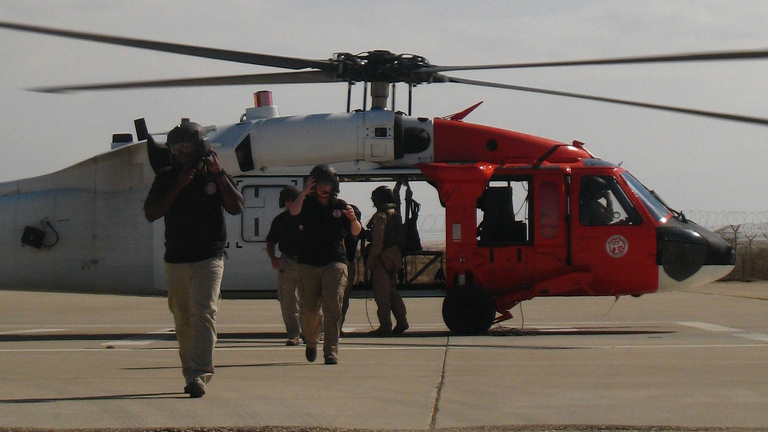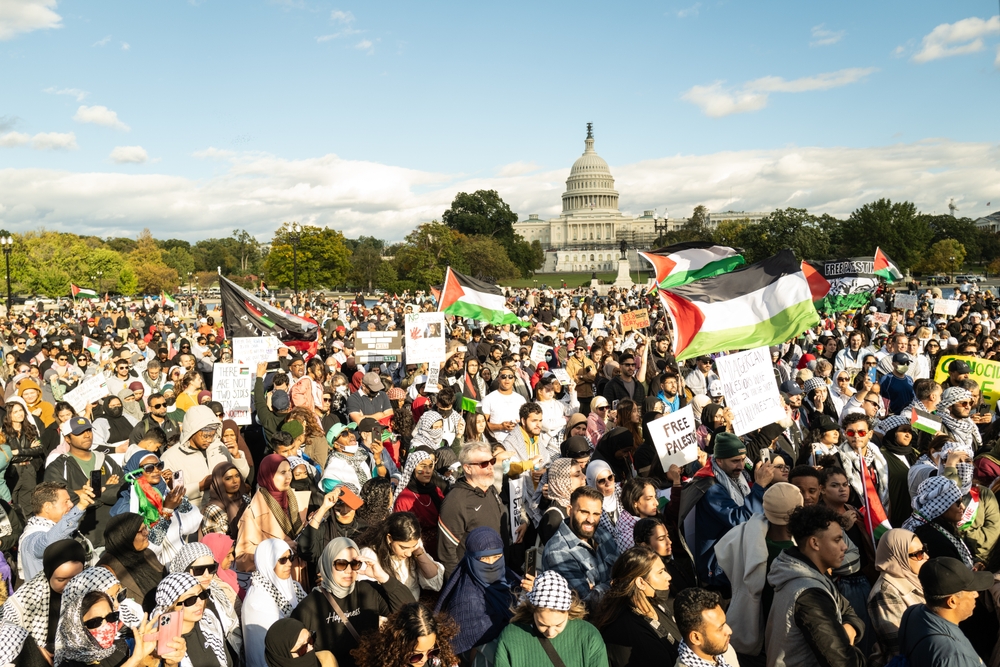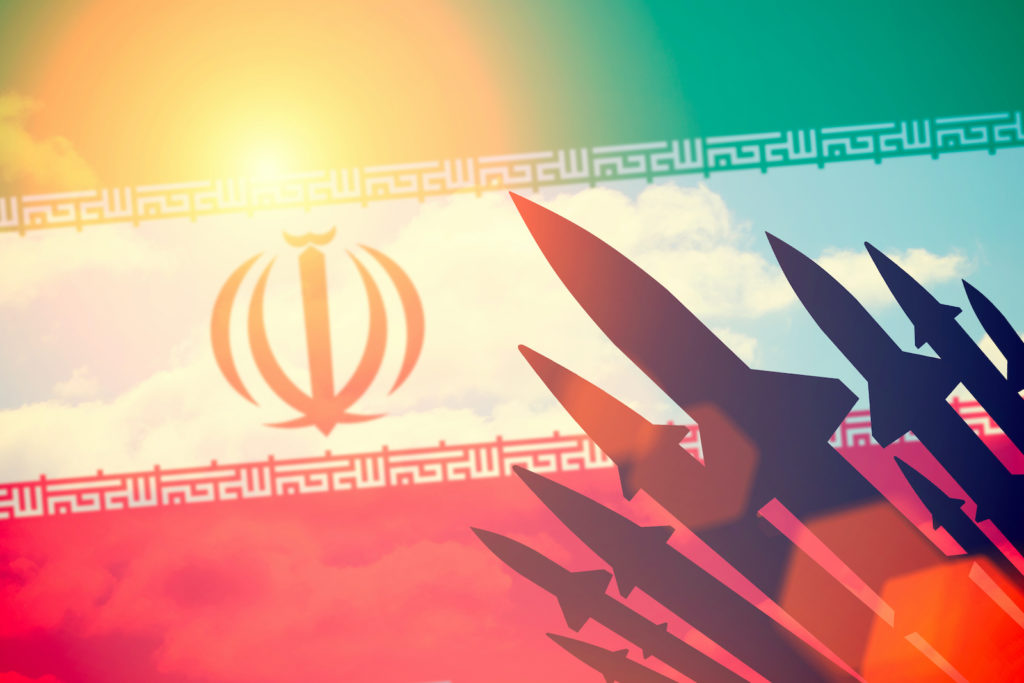UPDATES
Future of Sinai’s MFO in Question
Jun 1, 2016

The future of the Multinational Force and Observers (MFO) is being called into question amidst further deterioration of the security situation in the Sinai Peninsula. Once considered a low-risk – even sought-after – peacekeeping deployment, the MFO camp in North Sinai has been under continued threat from an ISIS-affiliated insurgency that has become increasingly persistent since the ouster of former Egyptian President Muhammad Morsi in July 2013.
In the past week, Fiji announced its intention to bring home 65 of its 338 peacekeepers and Canada’s top defence commander warned that the Sinai’s toxic security environment was having a detrimental impact on the mission’s viability. There are currently 70 Canadian soldiers serving in Sinai, including the MFO’s Commander, Major-General Denis Thompson. Australia presently contributes a contingent of 26 personnel.
This is a concerning development for Israeli-Egyptian bilateral relations and Middle Eastern peace more broadly.
The history and role of the MFO
The MFO effectively acts as a strategic guarantor of the 1979 Israeli-Egyptian peace treaty, ensuring that the security arrangements established by the Camp David Accords are rigorously observed by both parties. In particular, it monitors Zone C which runs along the Sinai’s eastern flank, bordering Israel, and ensures freedom of navigation through the Straits of Tiran. It is important to understand, however, that the MFO is an independent organisation – formed in 1981 by the U.S., Israel and Egypt outside of the United Nations framework (the result of a presumed Soviet veto at the UN Security Council). The mission is supported by 1,682 personnel supplied by 12 nations, though the U.S. provides by far the largest contingent (707 troops) and covers one-third of the organisation’s annual budget (the other two-thirds – less donations – are funded in equal part by Israel and Egypt). The MFO’s limited number of stakeholders renders it more vulnerable to shocks and changes in the regional environment than comparable UN peacekeeping missions.
Australia’s contribution to the multilateral force has been small but longstanding. Upon its formation, the Fraser Government provided a combined air force-helicopter squadron which consisted of 144 troops and 8 helicopters. Deployed in March 1982, the contingent was withdrawn only four years later when the Hawke Government decided to reduce Australia’s peacekeeping commitments. It was later reinstated in January 1993 under Prime Minister Keating albeit with a reduced contribution of 26, the number at which it stands today. Between the years 1994 to 1997, the MFO was commanded by the Australian Army Officer Major-General David B. Ferguson. In August 2012, former Prime Minister Kevin Rudd made reference to the rising threat environment in the Sinai, raising concerns about the safety of Australian MFO peacekeepers. (For more information, see https://aijac.org.au/news/article/the-increasing-perils-of-peacekeeping-for-austra).
The MFO under threat
Though the Obama Administration continues to emphasise its commitment to the mission, last month the Pentagon announced that it was considering moves to reduce the exposure of peacekeepers to the growing North Sinai insurgency. MFO officials have been warning of worsening conditions for some time, as the persistent violence has transformed its core responsibility from monitoring treaty compliance to force protection – a duty that falls well outside its mandate.
Chiefly responsible for attacking the MFO’s base in North Sinai is Wilayat Sinai (‘Sinai State’), a jihadi group formerly known as Ansar Beit-al-Maqdis (ABM) before it pledged its allegiance to ISIS in November 2014 and changed its name accordingly. Whilst terrorist activity in the Sinai did exist prior to the Arab Spring (for example, the tourist resort bombings between 2004 to 2006), it dramatically increased after the 2011 Egyptian Revolution when ABM was formed. Following the overthrow of President Morsi by a military coup in July 2013, the Sinai-based organisation consolidated its focus on attacking the Egyptian Government and has since taken responsibility for a number of high-profile attacks against Egyptian security targets – including the downing of an Egyptian military helicopter over the Sinai with a surface-to-air missile in January 2014 and the sinking of an Egyptian naval patrol vessel two miles off the Sinai coast in July 2015.
MFO troops have been caught in the crossfire, becoming victims of mortar attacks and improvised explosive devices (IEDs) planted on roads frequented by the peacekeepers. In September 2015, two IEDs injured 6 MFO personnel – four Americans, two Fijians – near an isolated North Sinai checkpoint. The most significant incident occurred on 9 June 2015, however, when Wilayat Sinai subjected the MFO’s al-Gorah air base to a mortar and rocket attack, subsequently announcing on Twitter that it had targeted the ‘Crusader force‘ protecting Israel. Concerned about the group launching a major attack on MFO installations, in April 2016, the U.S. transferred a number of logistical and administrative personnel to its more secure South Camp at Sharm al-Sheikh.
Worsening this problem is the Egyptian military’s inability to effectively combat the insurgency despite the deployment of thousands of additional soldiers and large amounts of defence equipment to the region. The key reason for this failure seems to be Egypt’s reliance on conventional armed force (air and artillery strikes) as opposed to employing more advanced counterinsurgency tactics and using targeted intelligence to hunt down key terrorist figures. Furthermore, when MFO divisions have been seemingly under attack, Egyptian forces have proven reluctant to engage the insurgents; a situation that does little to soothe the fears of international policymakers.
As David Schenker of The Washington Institute for Near East Policy explains:
“The Obama administration has seemingly reached the conclusion that Cairo lacks the will to clear and hold territory in the Sinai. Worse, Washington lacks confidence that the Egyptian military, even if asked, would take steps critical for MFO force protection, such as demining roads leaving North Camp.”
As a result, last month Israel and Egypt were officially notified by U.S. Defence Secretary Ash Carter that the Obama Administration would be looking to reconfigure its deployment in the Sinai Peninsula. Its intention is to focus more heavily on unmanned remote sensing technology, allowing the repositioning of MFO peacekeepers to South Camp, away from the most dangerous hotspots in the North. This form of passive monitoring would likely consist of ground-based video cameras (which would still need regular maintenance by MFO personnel) and aerial and satellite imagery.
Consequences of a drawdown
There has been no public comment as yet on this potential shift in force posture by either Israel or Egypt; one can expect, however, a similar negative response to the last time a MFO downsizing was contemplated.
This is understandable for a number of reasons. Firstly, the MFO’s importance far outweighs its function as a treaty monitoring mechanism. Its presence has provided a means for Egypt and Israel to strengthen bilateral security cooperation, resulting in a situation today where the communication and collaboration between the two nations has reached a level that is unprecedented; an event that has led some U.S. officials to mistakenly suggest that the peacekeeping force may no longer be needed. Ironically, the Sinai’s deteriorating security situation has actually been a key driver in enhancing these relations – with Israel authorising the deployment to the Peninsula of Egyptian infantry battalions that far exceed limitations imposed by the peace treaty. This fact only serves to highlight the importance of the MFO’s existence, rather than negating its necessity.
Indeed, as Eric Trager of The Washington Institute for Near East Policy noted back in August 2015:
“Any decrease in the MFO’s strength risks weakening a multinational institution that has not only verified the 1979 treaty’s enforcement, but also encouraged the unprecedented Egyptian-Israeli strategic coordination that exists today.”
Notwithstanding that Israel has a positive relationship with the current Egyptian President, it has never been more conscious of the fact that it lives in a volatile neighbourhood with circumstances that are rarely static. In 2012, for example, former President Morsi moved a tank battalion into the Sinai without distinct Israeli approval, and under Morsi’s Muslim Brotherhood government, bilateral relations almost reached breaking point. Constructive relations with Egypt today provide no indication for what may arise in the future and Israel would justifiably be hesitant about a major U.S. drawdown along its borders.
In addition, the MFO represents a clear and tangible commitment by the United States to Middle Eastern peace and security. A reduced American footprint would serve to confirm fears about its potential disengagement from the region, particularly after its signing of the Iran deal which has been a significant point of contention between the U.S. and its traditional regional partners. The MFO preserves one of the few U.S. foreign policy accomplishments in the Middle East and it would constitute a major blow to peace if the mission was to substantially decrease in size and strength.
Lastly but equally significant, an MFO retreat would be perceived and marketed as an important operational victory for Wilayat Sinai, a group that aims to disrupt and dismantle the longstanding ceasefire between the two neighbours.
Tags: Egypt











